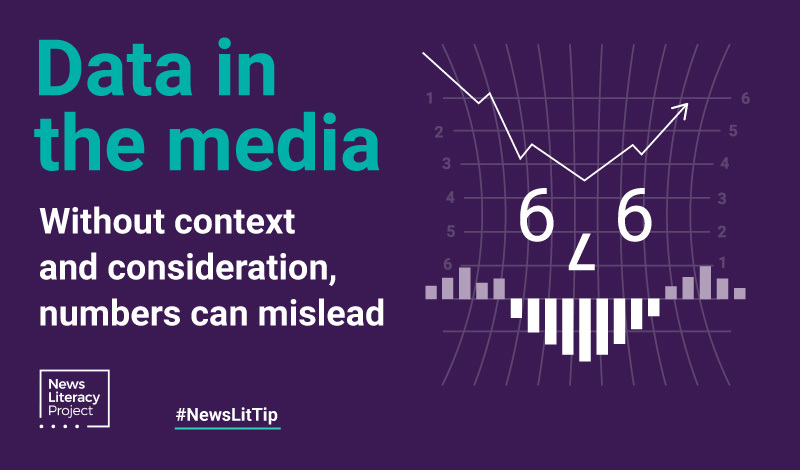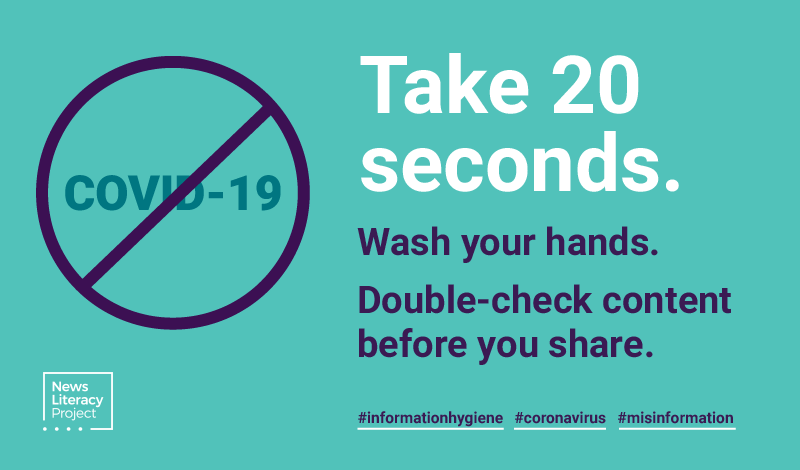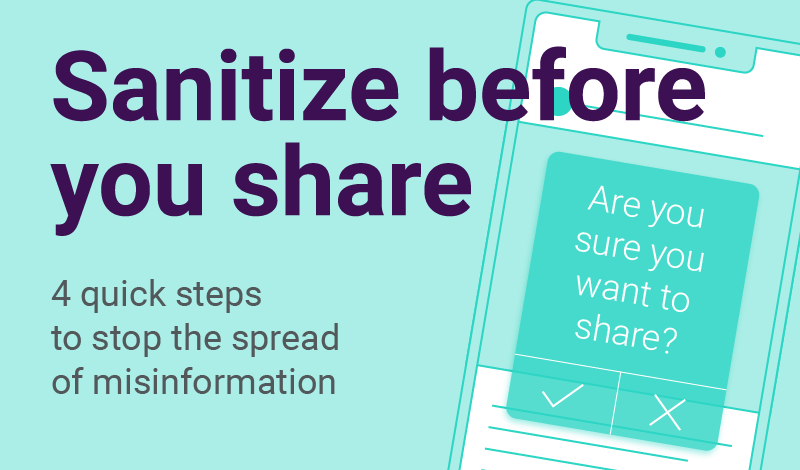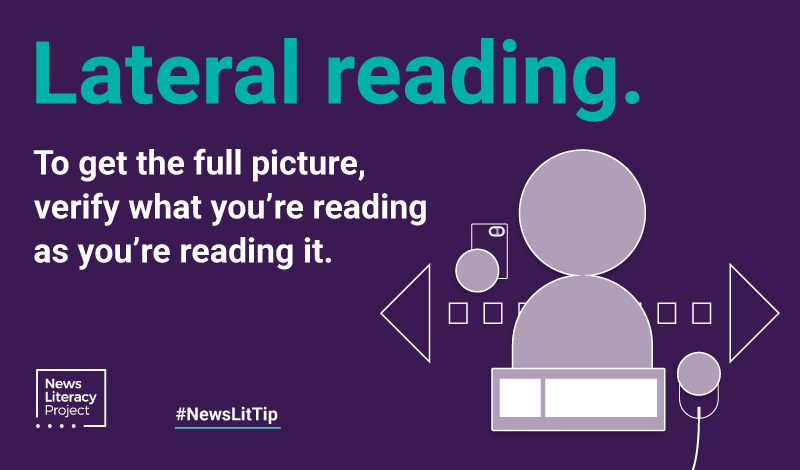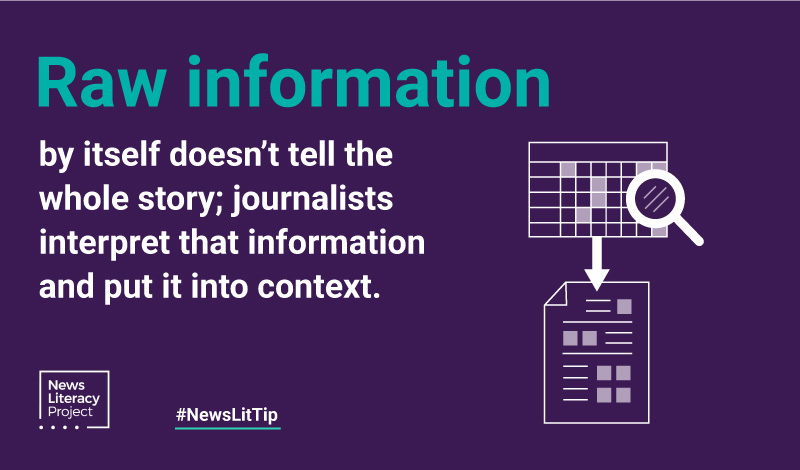
News Lit Tips
When encountering information, be wary, but open
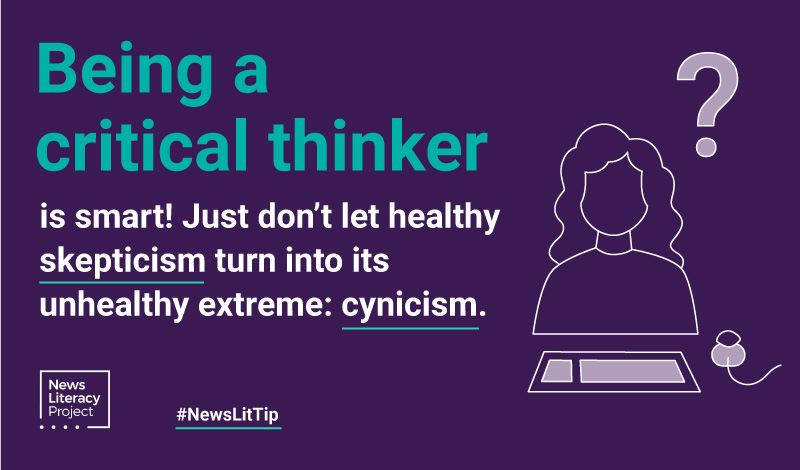
“‘Skeptics’ are healthy for journalism, but ‘cynics’ are not,” Merrill Perlman wrote in her Columbia Journalism Review column, Language Corner. The same could be said for consumers of news: skeptics, good; cynics, bad.
On first look at the origins of these words, they seem different: “Skeptic,” Perlman wrote, is derived from a Greek word meaning “thoughtful” or “questioning”; a “cynic” — which evolved from the name of a group of philosophers in ancient Athens — simply disbelieves everything.
But in practice, especially in an information environment seemingly filled with attempts to deceive, one might lurch over the dividing line between being skeptical and being cynical.
Indeed, that’s a problem, according to a study of college students’ news consumption habits. How Students Engage With News: Five Takeaways for Educators, Journalists, and Librarians — commissioned by the John S. and James L. Knight Foundation and published in October 2018 by Project Information Literacy, a nonprofit research institute — found that more than a third (36%) of the students said that the threat of “fake news” had made them distrust the credibility of any news.
John Wihbey, an assistant professor of journalism and media innovation at Northeastern University and one of the study’s researchers, pointed out the balancing act: “On the one side, you’re arming young news consumers to be aware of the source of information. On the other side, we don’t want to raise a generation not to believe in the power of well-reported, well-researched, well-sourced news.”
News literacy helps, say news experts, both in the mental habits it builds and in the tools it provides.
Mike Caulfield, director of blended and networked learning at Washington State University at Vancouver, responded to the Project Information Literacy study in an interview with the Poynter Institute, a journalism education nonprofit. Students, he said, might seem to have “cynical postures. But those cynical postures are based on being overwhelmed, and once you give them quick tools they can apply, the cynicism goes away.”
In remarks to students in March 2018, Poynter’s Roy Peter Clark was both philosophical and practical, calling “skepticism” and “cynicism” frames of mind. Skeptics seek the truth, Clark said; their frame of mind is to seek facts to support or refute information. Cynics leap to moral judgments; their frame of mind is to skip facts entirely. His advice: “Be a skeptic, not a cynic.”
